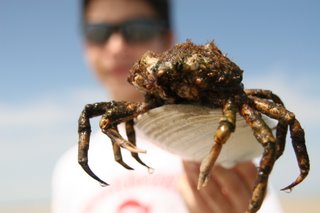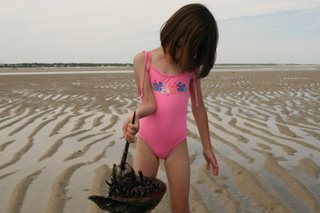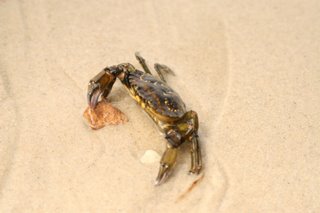
I love this story and read it every time I am on the Cape. To me it epitomizes the romance and adventure of the sea and the great sailing ships, tempered by the harsh cruelty of life at that time:
On a spring morning in 1853, Mary Ann Brown, a slender 16 yr old girl with feminine, delicate features and dark eyes and hair, was married to Capt. Joshua A. Patten. He was a 26 year old ship captain, known for his fine character and fast voyages.
This was the era of clipper ships. The large multi-masted ships that when fully set carried over an acre of canvas. Speed was very important for these ships, delivering their cargo as fast as possible over long voyages. Competition between ships for the reputation of being fastest was strong, and represented fame to the captain at the helm.
Newly married, the young couple set sail on the new clipper ship "Neptune's Car". For the next three years the young bride stood alongside her husband as his reputation for speedy voyages continued. It was not unusual for a captain to bring his wife along, despite the old rumor that a woman on ship was bad luck. What was unusual was the tutoring of navigation young Mary received from her husband.
On July of 1856, at the age of 19 and pregnant with their first child, Mary boarded Neptune's Car and set sail out of New York, bound for the west coast, via the southerly voyage around Cape Horn. It would be her final voyage.
During the journey, the first mate put the ship under shortened sail and fell asleep, while on his watch, on more than one occassion. Finally, the captain had no choice but to depose his first mate for insubordination. The second mate did not know navigation and so it became the captain's duty to navigate around the clock. After days of no sleep he suffered from the strain and the fatique and became delerious with a brain fever.
With no captain and no first mate, it came to the decision of finishing the voyage or of heading for the nearest safe harbour. Mary, believing she was following the wishes of her husband, resolved they would finish under her navigation, as dangerous as that decision might be. The first mate, appealed to the captain's wife to be restored to duty. Her reply was, since her husband did not find him qualified to act as first mate, she did not find him qualified to be captain. He then tried to rouse the crew to mutiny against her. She gathered the crew together and appealed her case to them. To a man they resolved to stand by her.
The next weeks were grueling. Now it was the pregnant Mary who did not sleep, splitting her time between nursing her sick husband and doing the calculations necessary to guide the ship on its course. Her husband's condition worsened, as he lost both hearing and sight. They reached the icy waters off the horn and spent 18 days battling cold and howling winds and 60 foot waves. Finally, after 50 days of constant duty and several days of being stuck in fog outside of San Fransisco, Mary took the helm and steered the ship into port. In honor of their brave young captain, the crew had polished her from bow to stern, and no ship could have looked in finer condition upon entering the harbour. Thus ended a 136 day voyage, beating another clipper ship that had set sail at the same time by 11 days.
Mary was hailed as a heroine. The financier's of the voyage wrote her a letter of gratitude and praise, including a sum of $1,000. Many felt it should have been five times that sum, due to the value of the cargo and ship being over $350,000. Mary, however, modestly accepted the money and letter, pointing out the indespensable efforts of the crew and second mate in their success.
Four months later, she gave birth to a son, named Joshua after his father. The captain took great delight in his child, but, before the year was out, the new father passed away. The flags of Boston Harbor were flown at half mast in his honor. A few years later, 24 year old Mary died destitute of Tuberculosis. She was buried next to her husband in Woodlawn cemetary in Everett, near Boston, their graves marked by two plain headstones that relate nothing of their love and heroism.
 Baby periwinkles (Sea snails).
Baby periwinkles (Sea snails). Underside of a periwinkle. When you pick them up their "foot" is huge, but then it quickly shrinks down and is pulled inside the shell.
Underside of a periwinkle. When you pick them up their "foot" is huge, but then it quickly shrinks down and is pulled inside the shell. Spider crab
Spider crab Horseshoe crab. Notice how far from the shore we are!
Horseshoe crab. Notice how far from the shore we are! Green crab.
Green crab.










